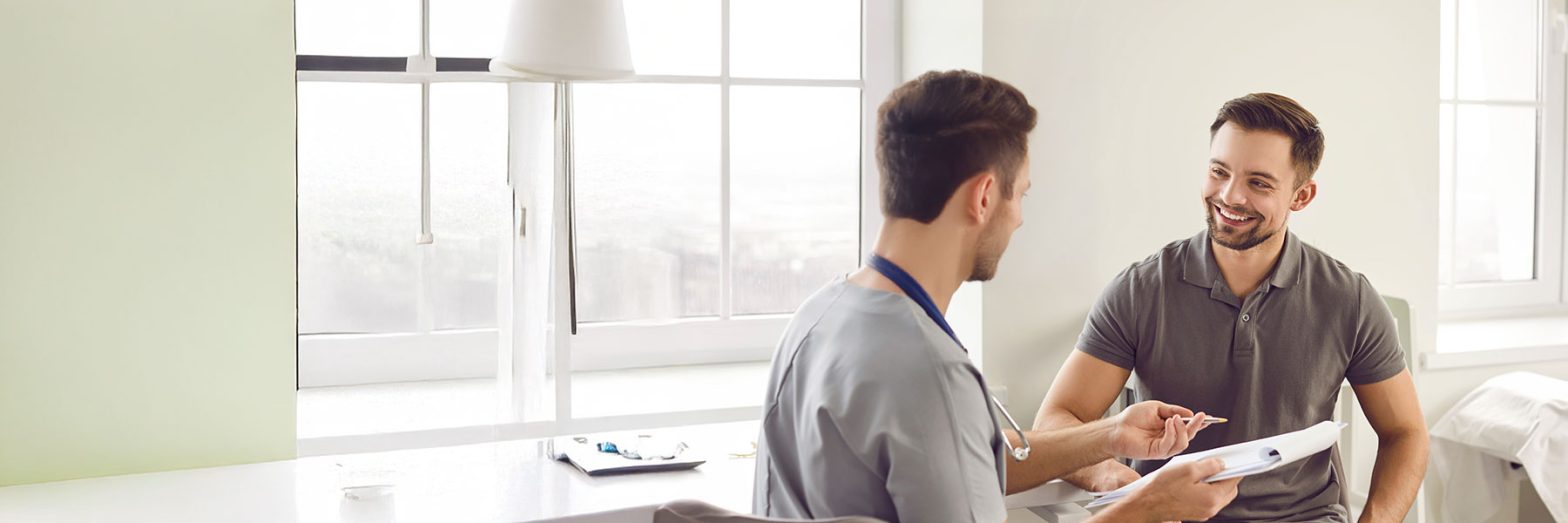
How to manage anal fissure pain
Anal fissures can cause extreme pain and discomfort, which can interfere with many aspects of day-to-day living.
However, there are numerous strategies and treatments available to help provide more comfort and encourage healing.
In this blog, we’ll look at how to effectively relieve the associated pain of anal fissures.
What are anal fissures?
Anal fissures are small tears in the lining of the anus. They are typically caused by trauma during bowel movements but can also result from conditions like chronic constipation, diarrhoea, or IBS (inflammatory bowel disease).
The main symptoms of anal fissures are intense pain during and after bowel movements. This can also be accompanied by bleeding and itching.
How to relieve anal fissure pain
There are lots of home remedies for anal fissures that you can try which can be effective at minimising symptoms.
Improved Diet
Adjusting your diet can really help to reduce your anal fissure symptoms. You will need to look at increasing your fibre intake through fruits, vegetables, and whole grains. Fibre helps to soften stools which makes them easier to pass, as a result, less strain is placed on the anal canal.
It is also important to ensure you are well always hydrated.
Sitz Baths
A sitz bath is a warm shallow bath that covers just the hips and buttocks to help relieve and heal bowel issues such as haemorrhoids and anal fissures.
The warm water helps to relax the anal sphincter muscles which reduces inflammation and increases blood flow to the area which can help with healing.
If you have bothersome anal fissures, then it is recommended to take regular sitz baths for 10 to 15 minutes to help relieve symptoms and make it easier to have a bowel movement without pain.
Stool Softeners
If chronic constipation is a big cause of your anal fissures, then stool softeners are often recommended to help prevent further trauma to the anal canal and reduce the need for excessive straining when having a bowel movement.
Topical Treatments
There are over-the-counter creams such as hydrocortisone and lidocaine that can be applied to the area to help reduce pain in the area.
Other treatments such as Glyceryl Trinitrate (GTN) or Diltiazem Cream and other forms of Calcium channel blockers may be prescribed if your anal fissure is not getting better. This medication helps to relax the muscles in your anus which then improves blood flow to the area which promotes healing.
Anal Fissure Treatment
There are medical treatments which can be performed on patients who have anal fissures that are struggling to heal.
Non-Surgical Anal Fissure Treatment
Botulinum toxin injections can be injected into the sphincter muscle which works to relax the muscles. This helps relieve the pain, whilst also improving blood flow which allows the fissure to heal.
Surgical Anal Fissure Treatment
Surgical procedures to treat anal fissures include Fissurectomy, Lateral Sphincterotomy and Advancement Anal Flap Surgery.
Fissurectomy
A Fissurectomy procedure cuts away the damaged skin surrounding the anal fissure including the anal fissure itself. It is often combined with other procedures such as Advancement Anal Flap or botulinum toxin.
Lateral Internal Sphincterotomy
A Lateral Internal Sphincterotomy (LIS) involves making a small cut around the sphincter muscle which reduces tension in the anal canal. This helps promote healing in the area and can also reduce the risk of recurrence.
Advancement Anal Flap
Advancement Anal Flap surgery takes healthy tissue from another area of the body, and places in into the anal canal to encourage healing of the fissure and improve blood supply to the area.
Does Surgery permanently cure anal fissures?
A lot of the advice provided above focusses on relieving the symptoms of anal fissures and creating the best environment for the anal fissure to heal. An Anal Fissure can heal by itself, but in certain cases, surgery may be required.
Anal fissure surgery has a 90% success rate. Whilst surgery can permanently cure the anal fissure for most patients, this is not always guaranteed.
It can take up to 8 weeks following surgery for an anal fissure to heal. In some cases, further treatment or tests may be required but this will depend on your individual situation.
Expert Anal Fissure Surgeon
Mr Piero Nastro provides consultations at our clinic in London Harley Street. He is able to provide treatment for all types of haemorrhoids and other issues including fissures and skin tags. Anal fissure treatments are carried out at our privately owned London hospital located on Fitzroy Square.
Why choose The Private Clinic for anal fissure treatment?
The Private Clinic has over 40 years of offering the most advanced and effective treatments achieving outstanding results. We work with experienced surgeons, doctors and nurses who are able to provide the best care and aftercare ensuring the patient’s safety and satisfaction every step of the way.
Our private self-pay anal fissure treatment options give you maximum flexibility to avoid patient waiting lists and choose the best treatment to suit you and your lifestyle.
Find out more about our anal fissure and other colorectal treatment options.
At The Private Clinic, we offer:
- Thorough consultations with Consultant Colorectal Surgeons who will diagnose and recommend the most appropriate treatment all within one consultation.
- Surgery performed at our discreet private hospital in Fitzroy Square.
- Daycase procedures.
- 24-hour patient helpline direct to your nursing team and surgeon, which means should you have any concerns we are here to help.
- Dedicated post-operative care and appointments with your surgeon and nursing team.
Our excellent reputation for patient safety and satisfaction, honest advice and outstanding care means your journey with The Private Clinic will be an exciting experience to newfound confidence.
Get in touch
To book a Anal Fissure Treatment consultation at our clinic please call 0333 920 2471 or use our online contact form.







